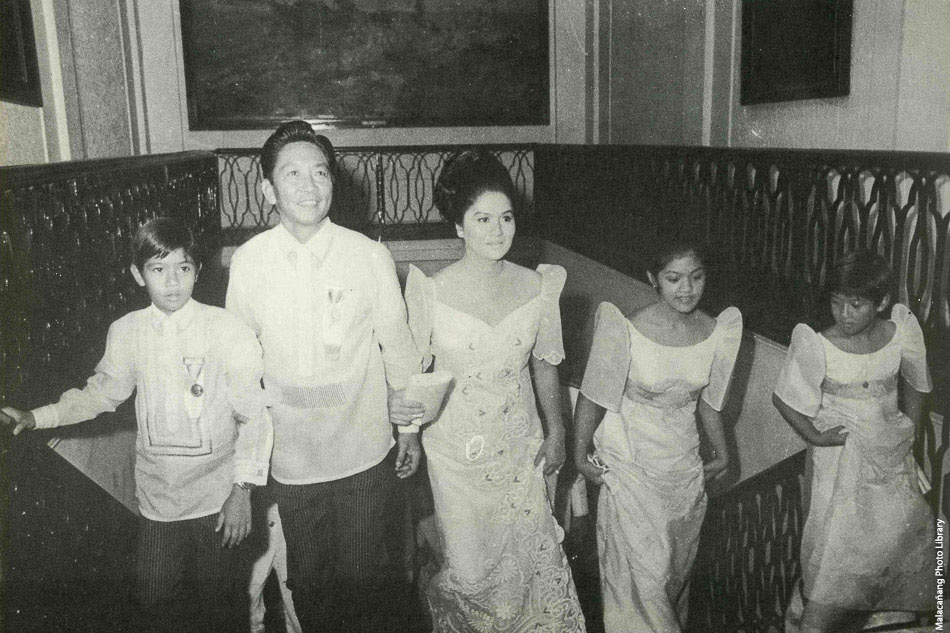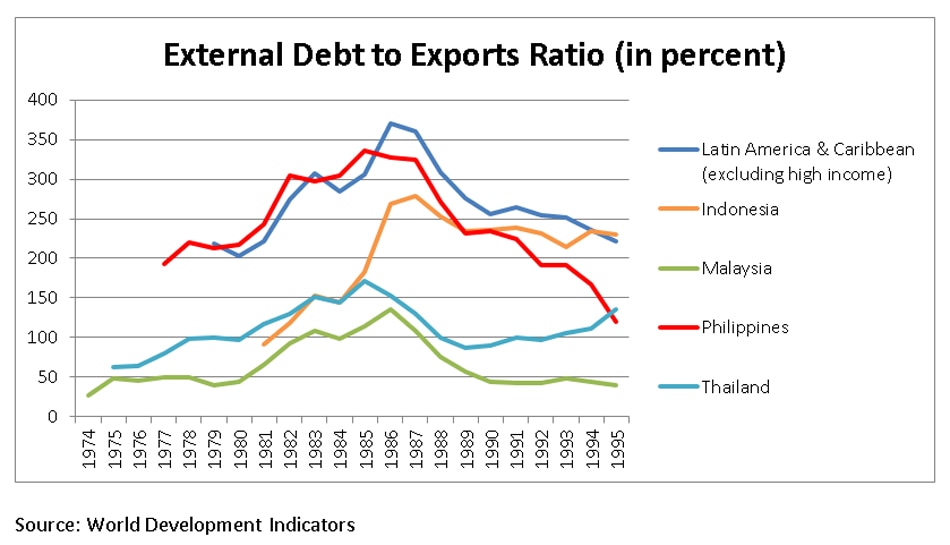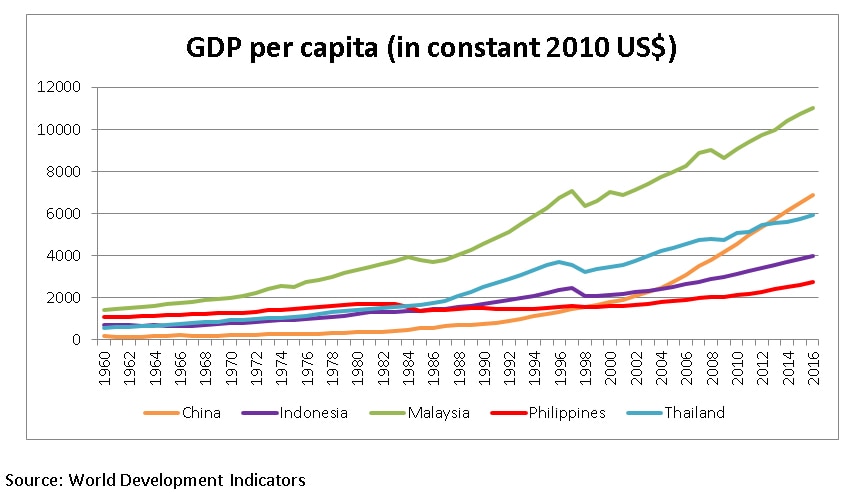'Golden years of martial law' only for the Marcoses, says human rights lawyer | ABS-CBN
ADVERTISEMENT

Welcome, Kapamilya! We use cookies to improve your browsing experience. Continuing to use this site means you agree to our use of cookies. Tell me more!
'Golden years of martial law' only for the Marcoses, says human rights lawyer
'Golden years of martial law' only for the Marcoses, says human rights lawyer
Gillan Ropero,
ABS-CBN News
Published Sep 21, 2021 12:53 PM PHT
|
Updated Sep 21, 2021 03:23 PM PHT
MANILA - A human rights lawyer debunked Tuesday claims that the martial law period under President Ferdinand Marcos was a golden age for the Philippines.
MANILA - A human rights lawyer debunked Tuesday claims that the martial law period under President Ferdinand Marcos was a golden age for the Philippines.
In an interview during the 49th anniversary of the martial law declaration, human rights lawyer Chel Diokno said only the Marcoses benefited from martial law, which was imposed on September 21, 1972.
In an interview during the 49th anniversary of the martial law declaration, human rights lawyer Chel Diokno said only the Marcoses benefited from martial law, which was imposed on September 21, 1972.
"It was the golden years for them but not for the country. They had absolute and ultimate power over everything and that allowed them to accumulate so much resources. But when it comes to ‘yung kapakanan ng lahat ng Pilipino ay talagang kabaligtaran yan," he told ANC's Headstart.
"It was the golden years for them but not for the country. They had absolute and ultimate power over everything and that allowed them to accumulate so much resources. But when it comes to ‘yung kapakanan ng lahat ng Pilipino ay talagang kabaligtaran yan," he told ANC's Headstart.
(But when it comes to the welfare of the Filipino people it was the opposite.)
(But when it comes to the welfare of the Filipino people it was the opposite.)
ADVERTISEMENT
Under Marcos rule', the Philippine poverty rate rose from 41 percent in 1965 to 58.9 percent in 1985 - a year before his ouster.
Under Marcos rule', the Philippine poverty rate rose from 41 percent in 1965 to 58.9 percent in 1985 - a year before his ouster.
The Philippines' foreign debt also rose from $1 billion in 1965 - his first year in office - to $28 billion before the 1986 EDSA People Power revolt.
The Philippines' foreign debt also rose from $1 billion in 1965 - his first year in office - to $28 billion before the 1986 EDSA People Power revolt.
From 1978-1991, the country’s debt stood at more than 200 percent of exports, peaking in 1985 during the last full year of Marcos.
From 1978-1991, the country’s debt stood at more than 200 percent of exports, peaking in 1985 during the last full year of Marcos.
Gross domestic product (GDP) growth peaked right after Marcos’s declaration of martial law in 1972, reaching nearly 9 percent in 1973 and 1976, partly driven by a commodity boom when the prices of major Philippine commodity exports like coconut and sugar went up.
Gross domestic product (GDP) growth peaked right after Marcos’s declaration of martial law in 1972, reaching nearly 9 percent in 1973 and 1976, partly driven by a commodity boom when the prices of major Philippine commodity exports like coconut and sugar went up.
However, it was also under Marcos when the country hit the worst recession in history: a 7.3-percent contraction for 2 successive years in 1984 and 1985, as his grip on power waned.
However, it was also under Marcos when the country hit the worst recession in history: a 7.3-percent contraction for 2 successive years in 1984 and 1985, as his grip on power waned.
ADVERTISEMENT
Average GDP growth during the Marcos years was at 3.8 percent, compared to 2.8 percent in the 1990s, 4.5 percent during the following decade, and 6.3 percent from 2010 to before the COVID-19 pandemic.
Average GDP growth during the Marcos years was at 3.8 percent, compared to 2.8 percent in the 1990s, 4.5 percent during the following decade, and 6.3 percent from 2010 to before the COVID-19 pandemic.
Diokno, who was 11 years old when his father, former senator Jose Wright Diokno, was arrested without legal charges during martial law, cited a study that showed how the Philippines lost 2 decades of development because of martial law. It was only in 2004 when the country was able to surpass its 1982 GDP per capita level and recover from the economic downturn during the Marcos administration.
Diokno, who was 11 years old when his father, former senator Jose Wright Diokno, was arrested without legal charges during martial law, cited a study that showed how the Philippines lost 2 decades of development because of martial law. It was only in 2004 when the country was able to surpass its 1982 GDP per capita level and recover from the economic downturn during the Marcos administration.
"There was a very nice study made by young economists recently where they showed data that we lost 2 decades of development because of martial law. That's why we became the sick man of Asia. It was because of how the economy was mismanaged by the Marcoses," he said.
"There was a very nice study made by young economists recently where they showed data that we lost 2 decades of development because of martial law. That's why we became the sick man of Asia. It was because of how the economy was mismanaged by the Marcoses," he said.
BONGBONG THE CANDIDATE
The dictator's namesake son, Ferdinand "Bongbong" Marcos Jr, is rumored to be eyeing higher office in next year's elections.
The dictator's namesake son, Ferdinand "Bongbong" Marcos Jr, is rumored to be eyeing higher office in next year's elections.
He earlier told ABS-CBN the supposed progress experienced by the Philippines under his father outweighs the criticisms being lodged against him.
He earlier told ABS-CBN the supposed progress experienced by the Philippines under his father outweighs the criticisms being lodged against him.
ADVERTISEMENT
"Kung meron akong sinaktan, I will always say sorry, but what I've been guilty of to apologize about?" the younger Marcos told ANC's Headstart.
"Kung meron akong sinaktan, I will always say sorry, but what I've been guilty of to apologize about?" the younger Marcos told ANC's Headstart.
"We have constantly said that if during that time of my father, mayroong mga nasagasaan or mayroong sinasabing hindi natulungan or they were victimized in some way or another, of course we're sorry that that happened. Nobody wants that to have happened. These are instances that have fallen through the cracks."
"We have constantly said that if during that time of my father, mayroong mga nasagasaan or mayroong sinasabing hindi natulungan or they were victimized in some way or another, of course we're sorry that that happened. Nobody wants that to have happened. These are instances that have fallen through the cracks."
For his part, Diokno said the Marcos siblings would have to own up to human rights violations and other issues under their father's military rule in order to move forward.
For his part, Diokno said the Marcos siblings would have to own up to human rights violations and other issues under their father's military rule in order to move forward.
"I cannot speak for them and that’s really their choice but from my own perspective they would have to really say and admit there were human rights violations, there was plunder, all these issues we know happened during the Marcos dictatorship," he said.
"I cannot speak for them and that’s really their choice but from my own perspective they would have to really say and admit there were human rights violations, there was plunder, all these issues we know happened during the Marcos dictatorship," he said.
He noted the Marcoses have stepped up their campaign to revise history by releasing well-produced videos in social media targeted to the youth.
He noted the Marcoses have stepped up their campaign to revise history by releasing well-produced videos in social media targeted to the youth.
ADVERTISEMENT
"I don’t think we were really able to put it into books and curriculum that our children were learning," he said.
"I don’t think we were really able to put it into books and curriculum that our children were learning," he said.
He also urged voters to choose wisely in the next elections.
He also urged voters to choose wisely in the next elections.
"I learned from my father. He said if we want to build a just and humane Philippines we need to have a national consciousness and a national conscience," he said.
"I learned from my father. He said if we want to build a just and humane Philippines we need to have a national consciousness and a national conscience," he said.
"Sana sa susunod na taon...pumili naman tayo ng mga kandidatong may national consciousness and national conscience."
"Sana sa susunod na taon...pumili naman tayo ng mga kandidatong may national consciousness and national conscience."
(I hope next year...we will choose candidates with national consciousness and national conscience.)
(I hope next year...we will choose candidates with national consciousness and national conscience.)
ADVERTISEMENT
A RELUCTANT CANDIDATE
A RELUCTANT CANDIDATE
Diokno, who is again running for a Senate seat in next year's polls, said he was "very reluctant" when he first made his bid in 2019.
Diokno, who is again running for a Senate seat in next year's polls, said he was "very reluctant" when he first made his bid in 2019.
"Until 2016 I was happy to be a teacher, a lawyer and to defend human rights but when our basic values and institutions are under attack sabi ko mahirap nang mahimik (it's difficult to keep quiet)," he said.
"Until 2016 I was happy to be a teacher, a lawyer and to defend human rights but when our basic values and institutions are under attack sabi ko mahirap nang mahimik (it's difficult to keep quiet)," he said.
"Hindi ko matatanggap na ang mga anak ko lalaki sa isang bansa na walang pananagutan at ganito ang klase ng hustisya at kumbaga ang core values natin ay pinapatay."
"Hindi ko matatanggap na ang mga anak ko lalaki sa isang bansa na walang pananagutan at ganito ang klase ng hustisya at kumbaga ang core values natin ay pinapatay."
(I couldn't accept my children will grow in a country with no accountability and with this kind of justice where our core values are being killed.)
(I couldn't accept my children will grow in a country with no accountability and with this kind of justice where our core values are being killed.)
Should he become senator, Diokno said he would look into the country's debt and find out how it will be paid in the national budget.
Should he become senator, Diokno said he would look into the country's debt and find out how it will be paid in the national budget.
ADVERTISEMENT
He added that he would also push for the amendment of the Anti-Terror Law and seek the removal of business disputes from the courts and bring it into arbitration.
He added that he would also push for the amendment of the Anti-Terror Law and seek the removal of business disputes from the courts and bring it into arbitration.
"That would decongest our courts, remove corruption nd speed up the resolution of cases," he said.
"That would decongest our courts, remove corruption nd speed up the resolution of cases," he said.
Read More:
Headstart
Chel Diokno
Marcoses
martial law
Ferdinand Marcos
Bongbong Marcos
Imee Marcos
2022 elections
ADVERTISEMENT
ADVERTISEMENT





